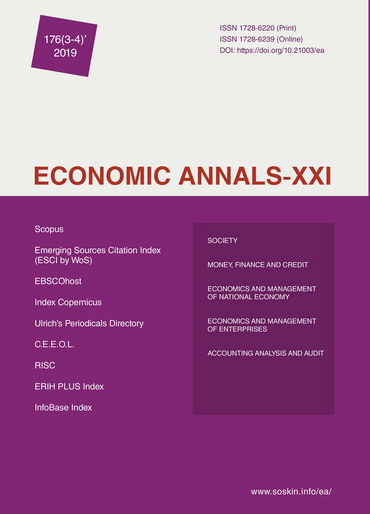Digitalisation and energy: world experience and evidence of correlation from Kazakhstan
Digitalisation and energy: world experience and evidence of correlation from Kazakhstan
Author(s): Arsen TleppayevSubject(s): Energy and Environmental Studies, ICT Information and Communications Technologies
Published by: Institute of Society Transformation
Keywords: Energy Consumption; Internet Usage; Digitalisation; Economic Growth; GDP; Technological Revolution; Energy Intensity Index; ICT;
Summary/Abstract: The rapid pace of development of the digital economy is an effect conditioned by technology and innovation that have been developing over several decades and becoming more common. The number of Internet users in Kazakhstan increased from less than 1% in the 1990s to 81% in 2018, which happened due to a sharp decline in the cost of access and a high increase in computing power. The technological revolution has become a source of stimulating economic growth with less energy consumption. Digitalisation is considered to be a factor contributing to energy efficiency in the economy. The relationship between digitalisation, energy consumption and economic growth is a theme which has gained momentum recently. This paper attempts to estimate the effects of technology and economic factors on the energy intensity in Kazakhstan. The paper employs econometric methods: the unit root test, cointegration methods and the Granger causality test. All data were obtained from the World Bank’s database for the period between 1994 and 2018 as well as the Statistics Committee of the Ministry of National Economy of the Republic of Kazakhstanand the Odyssee database by EU. The results demonstrate that Internet usage and trade openness impact energy intensity. The results demonstrate that Internet usage and trade openness has a negative effect on energy consumption in the long run. The liberalisation trade and economy reduces the consumption of energy obtained from fossil fuels and minimises environmental degradation. Digitalisation is supposed to stimulate the efficiency of the energy system by optimising consumption and metering, reducing losses, generating with lowest possible costs and emissions, etc. Economic growth has a positive and statistically significant impact on energy intensity. The article contains certain recommendations for policy makers: the government should attract more investment and provide consistent support for ICT to increase the energy efficiency and to decrease total energy consumption.
Journal: Економічний часопис - ХХІ
- Issue Year: 176/2019
- Issue No: 3-4
- Page Range: 56-64
- Page Count: 9
- Language: English

